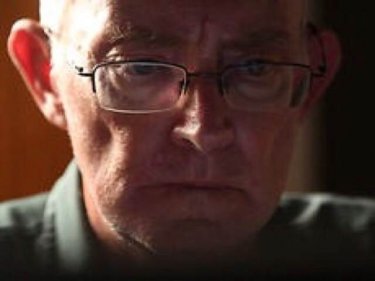In the time it took him to get there, we wracked our brains to conjure up the person we may have offended.
Never in our wildest imagination did we think that we were being prosecuted by the mighty Royal Thai Navy.
We'd had a good relationship with the Navy until that moment. The Navy has a base on Phuket, which is also our base, and we'd always reported when Navy patrol boats or warships rescued tourists in strife at sea or released back into the water young turtles raised from hatchlings.
The military in Thailand has enormous power and it's sometimes difficult for us to put in proper perspective what it means to be sued for serious charges by an organisation that is held in such broad community esteem.
We are seen by almost everyone as guilty. The Royal Thai Navy does not make mistakes.
Friends tried jokes. ''Never mind,'' one said. ''You are two journalists. There are 70,000 Royal Thai Navy officers. You've got them outnumbered and surrounded.''
Criminal defamation is a nasty charge, involving a maximum penalty of two years in jail. The Computer Crimes Act is even worse, with its five-year maximum sentence.
What makes it worse is that once laid, a CCA charge cannot be withdrawn. It had to be followed through to court.
Both charges are being used in other cases to stifle freedom of speech and silence critics.
But there is never a moment when we are going to run. If we flee, it will be a setback for everyone. The principle of media freedom in a democracy is something we believe should be upheld.
We aim to fight, even though the words we are defending are not even ours.
Our ''crime'' centres entirely on three little words, the key part of a 41-word paragraph from a Reuters series on the stateless Rohingya. The series later won a Pulitzer Prize.
We simply reproduced that paragraph, word for word.
We've said all along that these charges were initiated by one or two misguided Navy officers on the basis of bad advice and an extremely poor translation of one Reuters paragraph, from English into the Thai language.
In the translation, the words ''Thai naval forces'' became ''Royal Thai Navy.''
The truth about what could happen sank home on the day we first appeared at Phuket Provincial Court and had to spend five hours in the cells, awaiting the judge's decision on whether we would be allowed bail.
I am in the male cell, among prisoners in jail uniforms, most of them wearing heavy metal ankle shackles.
Some of our bravado is dissipating in the sticky heat as we hear stories of the horrors in a jail built for 750 inmates, but now excessively crowded with 3000.
One of the men calls out to my colleague, Chutima Sidasathian, who is in the female cell: ''Tell us, what is the farang guy [me] in the white shirt and tie in for?''
''We are being sued by the Royal Thai Navy,'' she yells back
''Hooo, that's big, big. You play with the big guys.''
''No,'' she fires back. ''The big guys are playing with us.''
How right she is. An application for bail we make to the Rights and Liberties Protection Department of the Justice Ministry is rejected and the assessment committee adds in a letter:
''The information . . . is false and untrue. The journalists must be correct and recheck their information before publishing the story to make sure there is no danger to others.
''The reputation of the Royal Thai Navy was damaged and made people look down on the Navy. On the evidence we have, we believe Morison and Khun Chutima did the wrong thing.''
Found guilty, before our trial is held, and by a committee within the Justice Ministry . . .
In the months after we are charged, we remain keen to talk. We organise to meet in Bangkok with the Royal Thai Navy in the hope we can mediate a settlement.
At the time, protesters are occupying some of the capital's streets.
We are out of luck.
The day before the mediation meeting, the military takes charge of Thailand in a coup. The Royal Thai Navy is now even more powerful.
We receive word that the talks have been cancelled.
There are times now that the military is in charge when dread takes the place of casual, unnerving fear.
We believe the coup is necessary to prevent bloodshed in the streets, but having the military in overwhelmingly powerful control does not improve our chances.
Friends and family suggest we should flee. How could we expect a fair trial now?
Yet we opt to stay.
For seven years we have been reporting on the exodus of the stateless Rohingya from Burma, reporting on their brutal treatment at the hands of the Burmese Navy and traffickers in Thailand.
Somehow, it didn't seem right to run because of two other reporters' three little words.
The fight continues. On September 1, we will learn the judge's verdict.
Despite the sense that we are up against a very powerful force, our faith and our futures continue to ride with the Thai justice system.
And so, it seems to us, does the future of Thai justice itself.
This article first appeared as a blog for Dateline on SBS television in Australia and is reproduced with permission.
Watch the Dateline documentary
http://www.sbs.com.au/news/dateline/story/thailands-moment-truth









Haven't you worked out that at present Thailand is not a democracy! It is under military dictatorship.
Posted by coxo on August 26, 2015 07:38
Editor Comment:
It's a democracy under reconstruction, coxo. Whether the road to the future will be wider or narrower, we'll find out when the ''Detour'' signs come down.